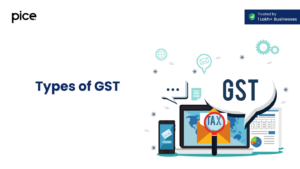Form GST REG 14: Amend Your Registration Effortlessly
- 27 May 25
- 7 mins
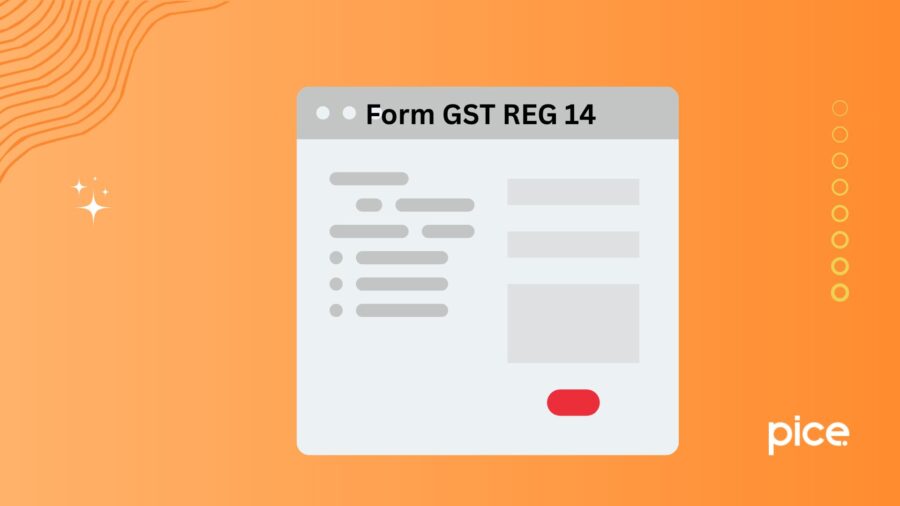
Form GST REG 14: Amend Your Registration Effortlessly
Key Takeaways
- Form GST REG-14 enables businesses to update their GST registration details promptly and accurately.
- Core field amendments like legal name or business address need tax officer approval and take up to 15 working days.
- Non-core field changes, such as updating bank details or authorised signatories, are auto-approved without intervention.
- The amendment process must be initiated within 15 days of any change via the GST Portal.
- Failure to respond to tax officer notices for core changes can result in rejection of the amendment application.
One of the most crucial and mandatory procedures a business must follow to make sure their information is accurate and comply with the Goods and Service Tax (GST) regulations is amending GST registration.
The application in form GST REG-14 is exclusively designed to allow registered persons to amend their registration details efficiently. The form outlines aspects such as amendment types, the filing process, and important considerations of amendment in GST registration.
Parts of Amendment of GST Registration Fields
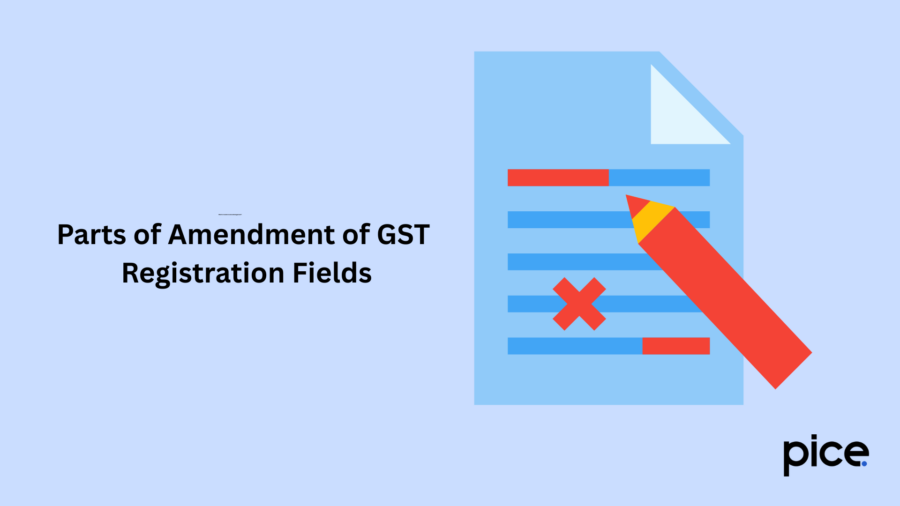
The amendment in GST registration fields involves changes to the information provided during the initial registration. These amendments are broadly categorized into core and non-core fields. Core fields, such as the legal name of the business, principal place of business, and details of promoters/partners, require approval from the tax authorities and typically take around 15 working days for processing.
Non-core fields, including changes to the authorised signatory, bank details, and minor adjustments to the business address within the same state, are usually auto-approved without the need for tax officer intervention. Taxpayers need to file an amendment application on the GST portal, providing reasons for the changes and uploading necessary documents within 15 days of the event necessitating the amendment.
What are the Core Fields Amendment?
The core fields amendment include the following:
- Changing Legal Name: Provided the Permanent Account Number (PAN) remains the same, businesses can amend their legal name.
- Changing Address: Businesses can change their location, or their principal address.
- Adding Places of Business: Adding a new location to your business without changing the state is allowed.
- Updating Key Personnel: This includes adding or removing managing directors, partners or members of governing bodies.
What are the Non-Core Field Amendments?
The non-core fields' amendments includes the following:
- Authorised Signatory Details: Changing information of individuals authorised to act on behalf of the business.
- Details of Stakeholder: Businesses can update information about partners or promoters.
- Bank Account Details: Businesses can also add or update bank account details without taking approval from GST officials.
Eligibility Criteria for Amendment of GST Registration
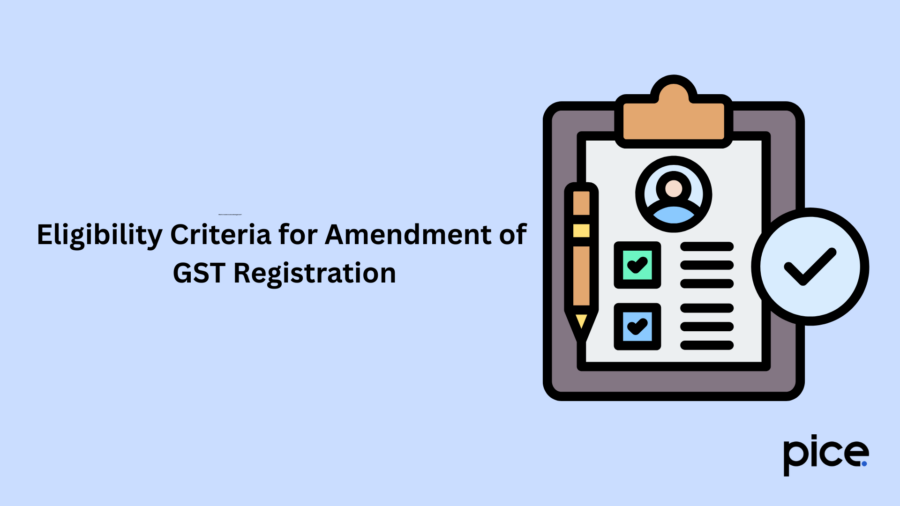
Any taxpayer from the following groups who are registered under GST can put up an application for amendment request and will be eligible for it:
- New Registrants and Regular Taxpayers
- This includes individuals and businesses that have recently registered or are regular taxpayers.
- TDS/TCS Registrants, UN Bodies, Embassies, and Other Notified Persons
- This category covers those who collect Tax Deducted at Source (TDS) or Tax Collected at Source (TCS), as well as organisations like the United Nations, embassies, and other specified entities that have a Unique Identification Number (UIN).
- Non-Resident Taxable Persons
- This refers to individuals or businesses that are not based in India but are liable to pay GST.
- GST Practitioners
- These are professionals who assist taxpayers with GST-related matters.
- Online Service Providers
- This includes companies that provide online services related to data access and retrieval.
Amendment Application Filing in Form GST REG-14
Once you access the GST Portal for online amendments and log in with your credentials, that is, username and password, the complete procedure of filing GST with the GST REG-14 form slightly varies with core or non-core fields. The steps are:
- For the very first step, you need to navigate to services and select registration. Then choose amendment of registration core fields or non-core fields as per your requirement.
- In the second step, make the relevant amendments to the necessary fields and upload relevant documents as required.
- You can use either a Digital Signature Certificate (DSC) or an electronic mode, that is, an Electronic Verification Code (EVC) to file the application.
- For the final step all you need to do is wait for approval. A GST proper officer will approve your core field amendments within 15-working days, whereas, non-core fields amendment are usually auto-approved and will reflect on the GST portal without further intervention.
Significant Points About GST Registration Amendments
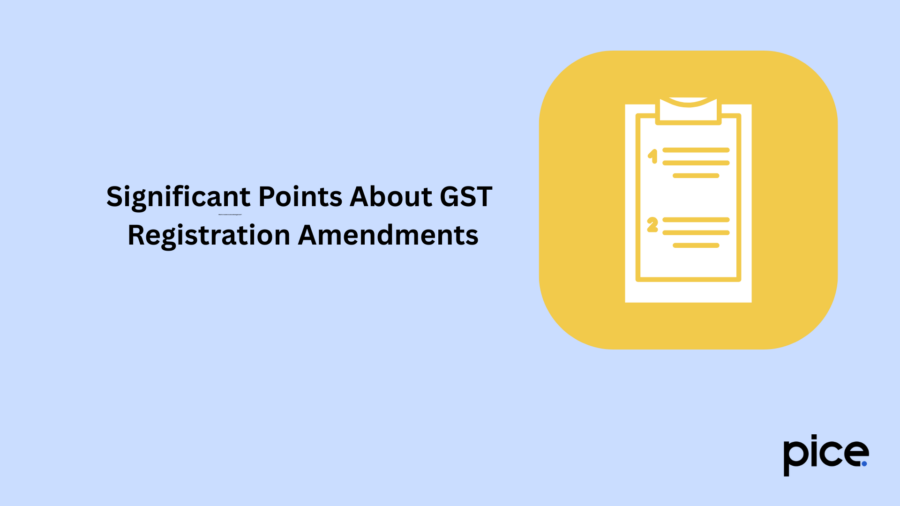
It is crucial to keep several points in mind while amending GST registration details:
- If there is a change in the business structure that leads to a new PAN, submit a new application for GST registration instead of amending the existing one.
- The competent authority must approve changes to core type of field within 15 working days; if not, the application for registration will remain pending.
- Non-core field's amendment may be automatically approved and visible on the portal right after submission.
- If a proper officer finds an amendment unsuitable, they can issue a notice in Form GST REG-03 by asking for a response from the applicant (Form GST REG-04).
- Not meeting the officer's requirements may result in rejection of the amendment application.
Conclusion
Overall, filing an amendment using Form GST REG-14 is a simple registration process that allows businesses to keep their registration details current and compliant with regulatory requirements. By understanding the distinctions between core and non-core amendments and following the correct filing procedures, businesses can navigate this registration process effectively.
Regularly updating registration details not only ensures compliance but also enhances operational efficiency and credibility in business dealings.
💡If you want to streamline your invoices and make payments via credit or debit card or UPI, consider using the PICE App. Explore the PICE App today and take your business to new heights
 By
By 










